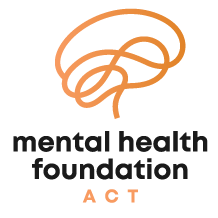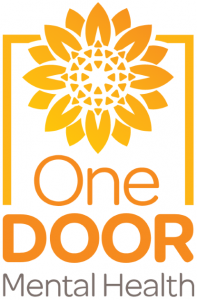Overview
Mental Health Community Support Services (MHCSS) are registered organisations that work with individuals, families and carers affected by mental illness. Some are operated by the federal, state and territory governments, while others operate in the non-government sectors (not-for-profit and private organisations).
Based on their structure, they might be offering support and intervention programs face-to-face, online and over the phone.
Services may include:
- 1-on-1 support from a peer worker, community support workers or non-clinical support workers
- support groups with others who are going through similar experiences
- workshops that aim to increase knowledge, awareness and understanding around mental health and wellbeing
Choosing the right community support services
When you’re looking for a support service, it is a good idea to ask questions and if you are unsure, and have the option to, speak to a few different services until you find one that is right for you. If you aren’t sure what service to contact ask family, friends or neighbours for recommendations to help you get started.
A good support service should listen to what is important to you and ensure you are involved in and are the leader of your support from the start to the end.
The service should support you to:
- set your own personal goals
- identify and work with your strengths
- connect you with other people who can help you achieve your goals
- support you to work on the relationships that are important to you
When you make your first appointment to meet with a support service, don’t forget to ask whether you can bring a support person or advocate along with you. This can be helpful if you are feeling nervous or would like help asking questions.
Questions to ask
Knowing what to ask will help you to decide on the best support services for you (or the person you’re supporting). If you are uncertain about what to ask when you are meeting with a support service, here is a list of questions you may find helpfule:
- Where are you located?
- Do you come to me or do I have to travel to you?
- Can I bring a support person with me when we meet?
- Do I need a referral to access your services?
- How long is your waiting list?
- How can you help me?
- How many people will help me? What are their qualifications?
- Do they have similar lived experiences to me?
- How do you work (one-to-one, in groups, with family)?
- How often can you see me? For how long each time?
- What results should I expect?
- How do you charge? Is this covered by Medicare? What about the NDIS?
- Is there a free option? Free groups? Free training?
- What happens if I have to cancel my appointment?
- If I am unwell what actions do you take?
- How do I make a complaint or suggest feedback?
- Will I have access to my information and personal records? How can I access this?
- How often is my support reviewed and how is this review completed?
- Can I choose a time and place that suits me?
- I can’t leave my house and/or I don’t like meeting in person. Can we do this all online or over the phone?
You should also mention whether you have a preference in terms of the sex or gender of the people assigned to support you and you may request a cultural worker who speaks your language.
What can I expect?
When you meet with a support service you will be asked questions in order for the service to better understand you and how they can best support you. Questions may be about how changes to your mental health has been impacting your life, what you’ve tried so far, and whether you have a current support network.
They may ask about your thoughts, feelings and behaviour. They will assess your needs to determine the supports you need. For example, if you’re also a parent, they may ask whether you would like additional support with your parenting, accommodation and financial responsibilities.
They will work with you to create a recovery or support plan to help you identify and set your goals, identify what you would like to gain from working with the service, and discuss supports that can help you on your recovery journey.
They can also help connect you to other professionals that you may find helpful. These may include other programs and support groups within their organisation, and external as well.
How much does it cost?
Each service is different, so it’s best to ask them upfront when you contact them. Some services offer free support whilst others will require you to pay an hourly rate.
National Disability Insurance Scheme (the NDIS): If your mental health is greatly affecting your everyday life, you may be eligible for some financial relief for mental health support through the NDIS. The NDIS refers to this as living with a ‘psychosocial disability’. We have a section on accessing the NDIS for mental health.
Our Partners are here to help
Or explore our service options to locate other services near you or to talk to someone who can help you get the service or support you need.








